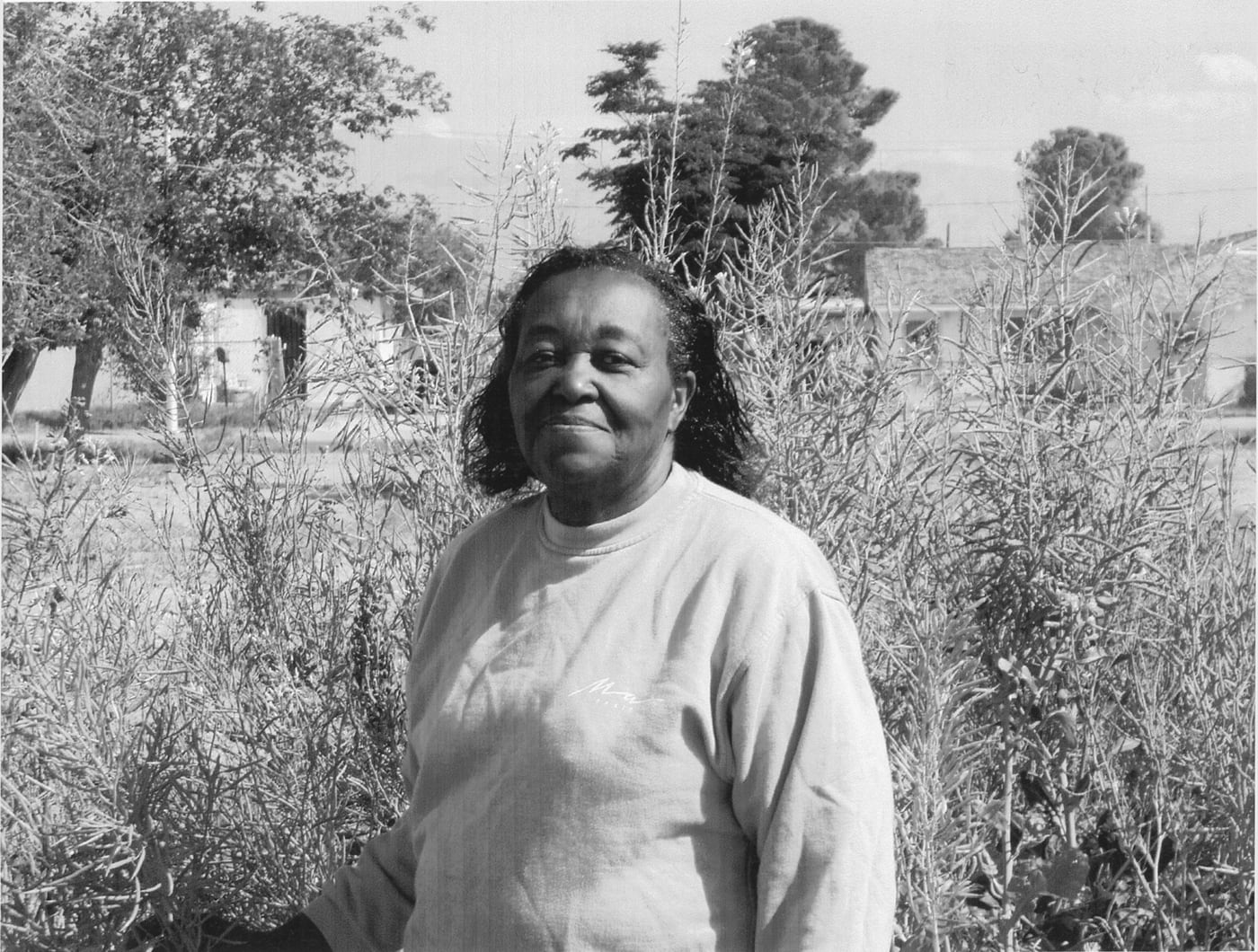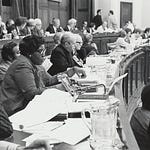
In January 1971, the state of Nevada—following an experiment launched by California governor Ronald Reagan—had slashed welfare benefits, catapulting single mothers and their families from poverty to near-starvation. Women who were minimum wage workers in the Las Vegas hospitality, entertainment, and gambling industry—even then, a multi-billion-dollar business—watched their children go hungry.
But Nevada hadn’t reckoned with what these women knew how to do. Migrants from the Jim Crow South, they had faced down tougher bosses and crueler state officials. Although Las Vegas was a racist city it was also a union town. As union members these mothers not only knew they had rights, but they had experience fighting for them.
More importantly, by 1971, there was a social movement for women supplementing their earnings with, or living on, welfare. In 1964, Wiley and Los Angeles mother Johnnie Tillmon had launched a national organization that linked together autonomous chapters of poor mothers to fight for the benefits that had been promised to them by federal law. It was called the National Welfare Rights Organization (NWRO.) In 1967, that movement reached Las Vegas. Rosie Seals and Alversa Beals, using the organizing techniques they had learned in a lifetime of agricultural labor and service work, their wisdom as mothers, and their determination to make life better, started the Clark County Welfare Rights Organization (CCWRO).
So, when Nevada withdrew those welfare benefits, the women of Clark County knew what to do. As one national organizer had explained to Ruby Duncan, the only way to fight back was “to hit them in the pocketbook.”
Duncan, now president of the CCWRO, contacted Tillmon and Wiley for help, and with Maya Miller of the National League of Women Voters, the group planned Operation Nevada, a massive series of demonstrations designed to bring Las Vegas’s famous strip—it’s gambling, entertainment, leisure hotels, and all-night free buffets—to a screaming halt.
Because that strip, as Duncan explained to historian Annelise Orleck two decades later, was the pocketbook. It was, she said, “the main vein.”
Orleck told the story of these women, a few of the thousands of mothers organized in hundreds of welfare rights chapters across the country, in her 2006 book Storming Caesars Palace: How Black Mothers Fought Their Own War on Poverty. The book is now a PBS documentary directed by Hazel Gurland-Pooler and released in March 2023.
But there are other reasons to return to this book. It describes a part of the African American civil rights movement that many people don’t know—perhaps because it was run, and the battles were fought, by Black women who saw their activism as an extension of their commitment as mothers.
Or maybe we don’t know their story because it’s not the story of oppression and dependency that the enemies of government programs like to tell. The Clark County Welfare Rights Organization called their project Operation Life, and they literally brought their community to life with cultural programs, healthcare, childcare, and job training that they devised, built, and ran themselves.
Yes, the women of Clark County fought for their right to receive welfare, and to not be shamed by it. But they also used their organizing and fundraising skills to create the institutions their community needed to thrive. They lifted themselves out of poverty.
Program notes:
The opening clip features NWRO national organizer George Wiley speaking in 1971 as local welfare rights organizers launched their campaign on Nevada’s state government and hospitality industry. (Courtesy: Hezakaya Newz.)
Caesar’s Palace was built by developer Jay Sarno, and opened on August 5, 1966. It’s “Roman” theme shifted the vibe on the Las Vegas strip, opening the door to a higher level of what Annelise refers to as “the glitzy-glam” of this resort and gambling oriented town.
Annelise mentions the idea of “chain migration,” a term that is often used to describe international immigration as well. In the United States, it usually refers to African Americans leaving the Jim Crow South for northern and western cities. To learn more about this, listeners may wish to read Isabel Wilkerson, The Warmth of Other Suns: The Epic Story of America's Great Migration (Vintage, 2011.)
Annelise mentions African American men coming to Nevada first to work on the Colorado River’s Boulder Dam during the New Deal. Now named Hoover Dam, you can learn more about it here.
To get a sense of Las Vegas’s rise as a city based on entertainment and tourism, listeners may wish to read Sally Denton and Roger Morris, The Money and the Power: The Making of Las Vegas and Its Hold on America (Vintage, 2002.)
Claire mentions Frances Fox Piven and Richard Cloward as two intellectuals who were engaged with the National Welfare Rights Movement. One book that came out of the work they did with NWRO is Poor People's Movements: Why They Succeed, How They Fail (Vintage, 1978)
Claire also mentions the contemporary misuse of welfare funds in Mississippi: $94 million have allegedly been misused or are completely unaccounted for.
Annelise mentions the 1998 lynching of James Bird in Jasper, Texas: you can read more about Bird’s tragic and violent death here.
Claire and Annelise discussed Las Vegas employers’ historical use of welfare to lay workers off in the offseason, or to supplement poverty-level wages. As Annelise pointed out, multibillion dollar companies that lobby against raising the minimum wage still rely on a range of federal programs, including Medicaid: Walgreens and McDonalds are the top offenders, but Amazon, Kroger, and Dollar General are close behind.
While the women of Operation Life were denied the resources to limit childbirth, other women—like civil rights giant Fanny Lou Hamer were involuntarily sterilized. You can read about what Hamer and other women called “a Mississippi appendectomy” here.
Annelise reminds us that many of the institutions created by Clarke County’s welfare moms still exist, and that a school was named after Ruby Duncan: learn more about the Ruby Duncan that School Dreamkeepers here.
The portion of Ruby Duncan’s 2017 interview that we end with was originally recorded by the Nevada Women’s History Project and is posted to YouTube.
You can download this podcast here or subscribe for free on Apple iTunes, Spotify, Google Podcasts, or Soundcloud. And if you liked this episode, please join us!













Share this post